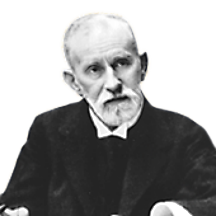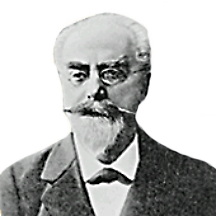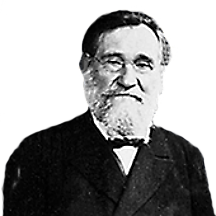Paul Ehrlich was born in 1854 in Strehlen, then Germany. In 1878 he received his M.D. degree from the university of Berlin and joined a team, that was investigating the tuberculosis bacillus. During this research he was infected by the disease and was compelled to retire for two years until his recovery. In 1896, he was appointed head of the Institute for Serum Research in Berlin.
In 1908, Paul Ehrlich was awarded, the Nobel Prize in Physiology or Medicine, together with Ilya Mechnikov, “in recognition of their work on immunity”.
From 1890, Ehrlich engaged principally in the locating of substances for human immunity. He aspired to discover “the magic bullet”, as he referred to it – a chemical substance that would serve as a cure, eliminating the causes of the disease without effecting the patient.
In the process of his research, he succeeded in developing a serum against the diphtheria disease and an arsanobenzen compound capable of destroying syphilis germs. In so doing, he freed the world from the horrors of a disease which had taken innumerable victims from the time of its appearance in Europe in the mid 15th century.
Ehrlich laid the foundations to modern chemotherapy, which is mainly characterized by introducing toxic substances into the body, whose effect on the disease exceeds the damage caused to the patient’s body.
Paul Ehrlich died in 1915. He is considered the most significant researcher of medicine of the late 19th century and the beginning of the 20th century.
the founder of modern chemotherapy.





